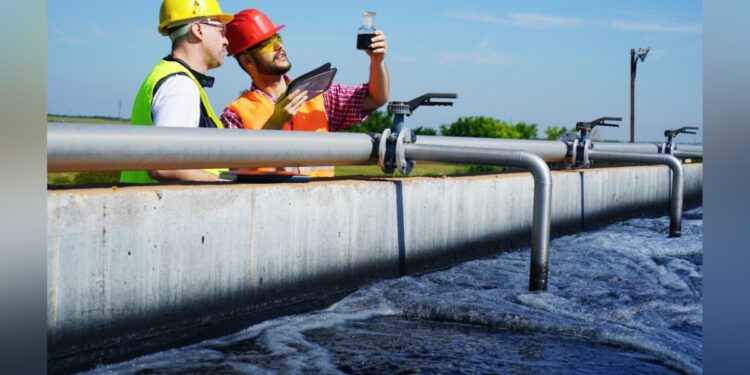In marine engineering, offshore operations, and desalination plants, the fight against corrosion is constant. Traditional materials like stainless steel often fall short when exposed to high salinity and harsh chemical environments. This is where Monel strip comes into the picture as a trusted, long-lasting material engineered for extreme durability.
If you are sourcing for marine projects, choosing the right Monel strip supplier can be the difference between long-term success and recurring maintenance costs.
In this blog, we’ll explore why Monel strips are the go-to material for seawater applications, their benefits, and what to look for in a reliable supplier.
What Is Monel and Why Is It Ideal for Seawater?
Monel is a nickel-copper alloy, primarily composed of approximately 67% nickel and 30% copper, with small amounts of iron, manganese, carbon, and silicon. Known for its superior resistance to corrosion, especially in saltwater environments, Monel offers unique advantages over other alloys.
Key Characteristics:
- High corrosion resistance to seawater and brine
- Excellent mechanical strength
- Resistance to stress corrosion cracking
- Good weldability and workability
- Withstands high pressures and temperatures
Because of these properties, Monel strips are commonly used in marine and offshore applications, including:
- Heat exchangers
- Condensers
- Pump and valve components
- Desalination equipment
- Piping systems
- Marine fasteners and cladding
Types of Monel Used in Strips
The two most popular grades used in Monel strip form are:
Monel 400
- Excellent corrosion resistance in seawater
- High strength and toughness
- Suitable for a broad range of marine applications
Monel K500
- Similar corrosion resistance as Monel 400
- Added strength due to precipitation hardening
- Often used in high-stress and load-bearing marine environments
When sourcing from a Monel strip supplier, it’s crucial to specify which grade you need based on your operating environment and mechanical load requirements.
Monel Strip vs. Stainless Steel in Marine Environments
| Feature | Monel Strip | Stainless Steel Strip |
| Corrosion Resistance | Superior in seawater | Moderate |
| Strength at High Temp | Excellent | Good |
| Cost | Higher | Lower |
| Maintenance Requirement | Low | Medium to High |
| Lifespan in Seawater | 20+ years | 5–10 years (with coating) |
While Monel strips are more expensive initially, their performance in marine environments far exceeds that of stainless steel. When accounting for reduced maintenance and replacement costs, the long-term value is undeniable.
Common Seawater Applications of Monel Strips
Let’s look at real-world applications where Monel strips are indispensable:
1. Desalination Plants
Desalination systems are exposed to high salinity and pressure. Monel strips are used in heat exchangers and brine heaters where corrosion resistance is non-negotiable.
2. Shipbuilding
From hull linings to exhaust systems, Monel’s anti-corrosive properties make it suitable for a wide range of shipbuilding components.
3. Offshore Oil Rigs
Seawater exposure, combined with harsh chemicals, makes offshore rigs a corrosion hotspot. Monel strips are used in cladding and pump systems to extend life and reduce downtime.
4. Marine Heat Exchangers
Heat exchangers demand a material that resists both temperature and corrosion. Monel strips provide the stability and thermal conductivity required in such systems.
5. Chemical Handling on Ships
Monel’s resistance to sulfuric and hydrofluoric acids adds an extra layer of protection in ships that transport chemical cargo.
Benefits of Choosing the Right Monel Strip Supplier
Sourcing the right material is only half the equation. Partnering with a trusted Monel strip supplier ensures you receive consistent quality, certified specifications, and expert guidance.
Here’s what to look for in a supplier:
1. Material Certification
Ensure the supplier provides mill test certificates (MTCs) confirming chemical composition and mechanical properties.
2. Custom Sizes and Tolerances
Marine projects often require non-standard dimensions. Your Monel strip supplier should offer slitting, annealing, and edge-conditioning services.
3. Corrosion Testing
A reputable supplier will provide third-party testing or in-house corrosion test reports to validate material performance in seawater.
4. Fast Lead Times and Stock Availability
Delays can halt critical marine operations. Look for suppliers with ready inventory and global shipping capabilities.
5. Post-Sale Technical Support
Top suppliers offer assistance with welding, fabrication, and application engineering even after the sale.
Expert Tip: Don’t Just Compare Price
Many buyers make the mistake of choosing a Monel strip supplier based solely on cost. While it’s important to manage your budget, overlooking technical service, certification, and delivery timelines can lead to expensive project delays or material failure.
Instead, assess the total value—including material quality, supplier reliability, and technical expertise.
Sustainability & Long-Term ROI
Monel is 100% recyclable, making it a sustainable choice for environmentally conscious marine projects. Its longevity means less frequent replacements and lower maintenance costs—resulting in an excellent return on investment.
In environments where failures are costly—such as offshore rigs or desalination plants—the premium you pay upfront for Monel strips pays off in the long run.
Final Thoughts
For critical marine and seawater applications, Monel strip stands out as the ultimate solution to corrosion. Its unique properties—combined with expert support from a reliable Monel strip supplier—ensure long-term durability, reduced downtime, and operational safety.
Whether you’re outfitting a desalination facility, retrofitting an offshore platform, or constructing a next-gen marine vessel, don’t compromise on materials. Invest in Monel.












